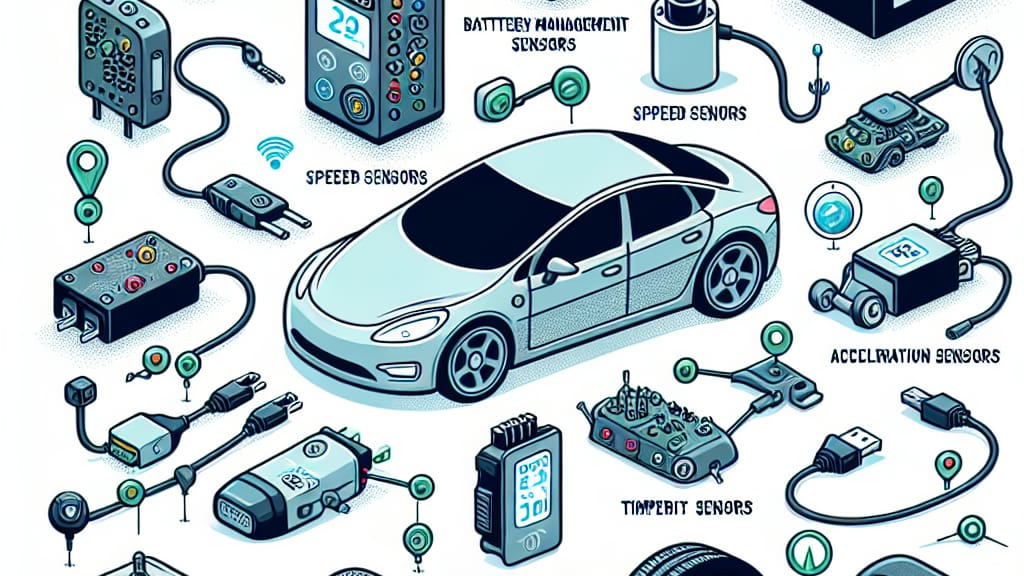In the ever-evolving world of Electric Vehicles (EVs), Power Electronics is a key domain that holds the potential to shape the future of sustainable mobility. From designing cutting-edge Motor Control Units (Motor Controllers) and Traction Inverters to developing efficient DC-DC Converters and On-Board Chargers, Power Electronics plays a vital role in driving the electric revolution.
In this blog post, we will delve into the essential parameters in Power Electronics, the significance of software tools, career prospects, and how you can embark on a fulfilling journey in this thriving field.
The Backbone of Electric Vehicles: Power Electronics
Power Electronics is the backbone of modern electric vehicles, responsible for efficiently managing and converting electrical power. Whether it’s controlling the motor’s speed and torque, regulating the battery charging process, or optimizing power distribution, Power Electronics plays a pivotal role in ensuring optimal performance and energy utilization.
Essential Parameters in Power Electronics:
Power Supply Design:
Understanding different topologies and designing power supplies that cater to the unique needs of EV components is crucial in Power Electronics.

Motor Controls and Sensor Interfaces:
Working with high and low current control circuits, sensor interfaces, and motor control units are fundamental skills in this domain.

Microcontroller Circuit Design:
Knowledge of microcontroller circuit design and digital interfaces enables precise control and coordination of various EV subsystems.

Thermal Design and Analysis:
Managing heat dissipation and ensuring efficient thermal design are essential for maintaining system reliability and performance.

Software Tools in Power Electronics:
Proficiency in software tools is vital for effective Power Electronics design and analysis. Some of the essential software tools include:
PSpice and LTspice:
These simulation tools help in analyzing circuit behavior and validating designs before implementation.

Matlab and Simulink:
Widely used for modeling and simulating complex control systems in Power Electronics applications.

SABER and ORCAD Capture:
These tools aid in comprehensive system-level simulation and circuit design validation.
Career Prospects in Power Electronics:
With the electric vehicle industry rapidly growing, career prospects in Power Electronics have never been brighter. Companies, including leading EV manufacturers like our esteemed client, are actively seeking skilled professionals to join their teams. Power Electronics experts are in high demand for roles such as:
Power Electronics Engineer | Motor Control Engineer | Hardware Design Engineer | EV System Integration Specialist | Research and Development (R&D) Engineer

Building a Career in Power Electronics:
To embark on a fulfilling career in Power Electronics, consider the following roadmap:
Educational Foundation: Pursue a Bachelor’s or Master’s degree in electrical engineering or electronics engineering to lay a strong educational foundation.
Skill Development: Acquire expertise in power supply design, microcontroller circuits, thermal analysis, and sensor interfaces through hands-on projects and industry-oriented training.
Software Proficiency: Master software tools like PSpice, LTspice, Matlab, and Simulink to conduct advanced simulations and design validation.
Gain Experience: Seek internships or entry-level positions in the automotive or EV industry to gain practical experience and exposure to real-world projects.
Continuous Learning: Stay updated with the latest advancements in Power Electronics through workshops, webinars, and online courses.
The Future of Power Electronics:
As the EV industry expands, the demand for skilled Power Electronics professionals grows exponentially. A career in this field offers not only a chance to contribute to sustainable transportation but also exciting opportunities for personal growth and innovation.
Conclusion: Embrace a Greener Future with Power Electronics

Power Electronics is the backbone of electric vehicles, enabling efficient power management and driving progress in the EV industry. By developing the right skills and knowledge, you can embark on a fulfilling journey towards a promising career in this thriving domain. Embrace the opportunities that Power Electronics brings, and become part of the transformative journey towards a cleaner, electrifying future of mobility.
